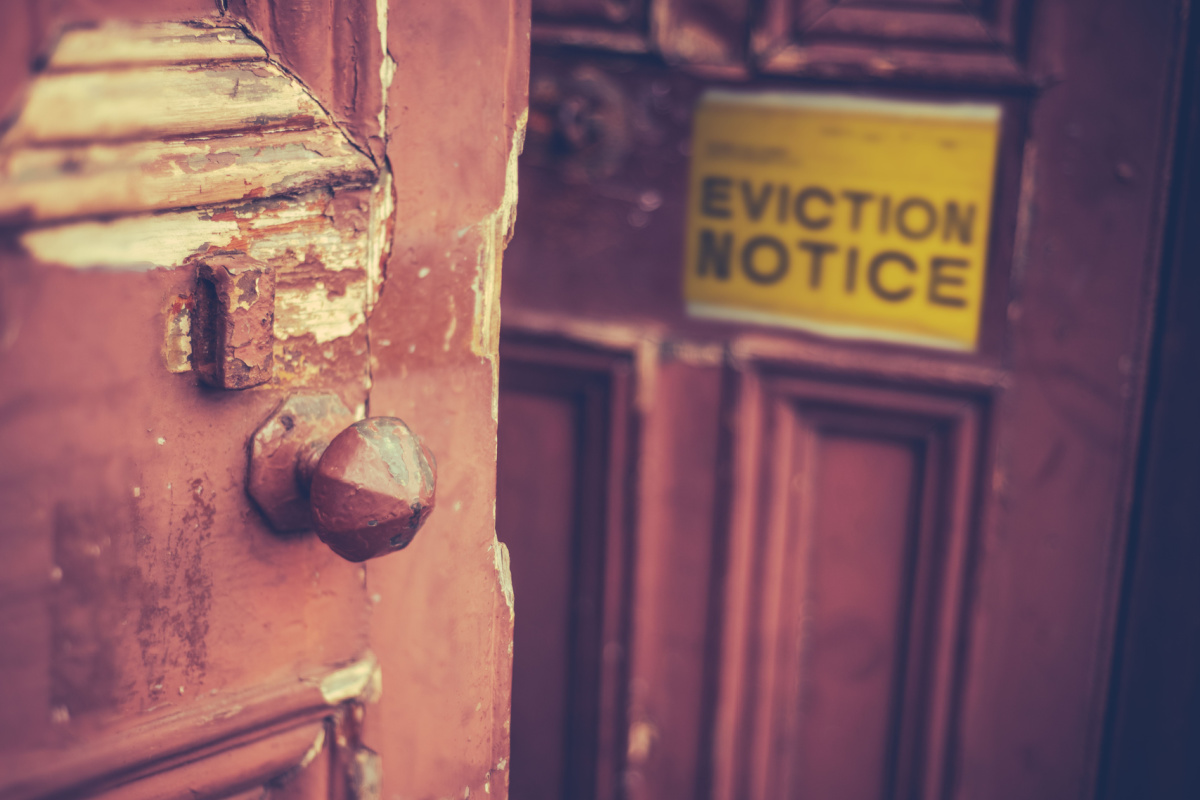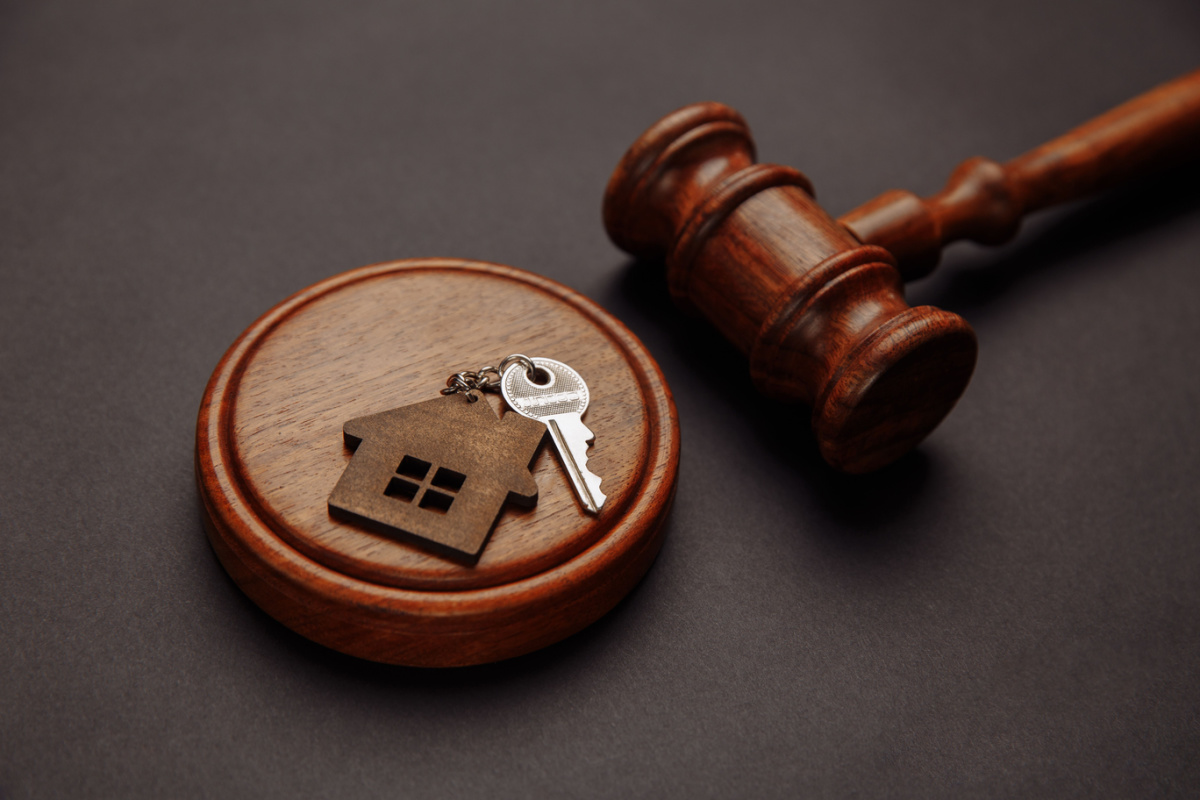





Attorney at Debt Advisors Law Offices
Practice Areas: Chapter 7 Bankruptcy, Chapter 13 Bankruptcy, Stop Foreclosure

Facing eviction is one of the most stressful experiences for families and individuals in Wisconsin. Rising living costs, debt burdens, and the end of emergency rental assistance have pushed thousands toward eviction.
Bankruptcy, while not a permanent solution, can provide temporary relief by slowing or halting the process. Understanding how bankruptcy and eviction laws interact is essential to making informed choices.
Eviction rarely happens overnight. Most people experience financial distress before reaching that point. Common warning signs include falling behind on bills, using credit cards to cover necessities, and receiving collection notices.
If these issues become constant, it may signal that ordinary repayment methods are no longer enough. Bankruptcy becomes an option when debt obligations grow beyond control and eviction is imminent. It should not be seen as a failure but as a legal process designed to provide a fresh start.
By recognizing these early warning signs, individuals have more time to prepare and consider whether filing makes sense for their unique circumstances.
One of the most powerful protections offered through bankruptcy is the automatic stay. Under federal law, filing for bankruptcy immediately pauses most collection actions, including eviction.
“Filing for bankruptcy triggers an automatic stay under federal law, temporarily halting most collection actions, including eviction.” (11 U.S.C. § 362)
However, this protection has limits. If a landlord already has a judgment of possession before the bankruptcy is filed, the automatic stay may not stop the eviction. Courts may also allow landlords to continue eviction if tenants are endangering property or using illegal substances.
In Wisconsin, eviction procedures are governed by state law, but once bankruptcy is filed, federal protections overlay those state rules. This means tenants gain some breathing room, but they should not assume eviction will be permanently stopped.
For more information, review the Wisconsin Court System eviction resources.
Bankruptcy offers two main paths for individuals: Chapter 7 and Chapter 13. Each works differently when eviction is involved.
|
Feature |
Chapter 7 Bankruptcy |
Chapter 13 Bankruptcy |
| Main Purpose | Liquidation of non-exempt assets | Repayment plan (3–5 years) |
| Impact on Eviction | May pause eviction but arrears must be paid or eviction may proceed | Allows repayment of rent arrears over time, stronger chance to avoid eviction |
| Duration on Credit Report | Up to 10 years | Up to 7 years |
| Suitable For | Individuals with little income/assets | Individuals with steady income |
Chapter 7 is often used by individuals with few assets and little income. It can temporarily stop eviction but does not erase unpaid rent obligations.
Chapter 13, by contrast, allows tenants to pay back overdue rent through a structured plan, giving them more leverage to stay in their homes.
The bankruptcy process involves a series of structured steps:
Bankruptcy has lasting effects on credit and finances. A Chapter 7 filing can remain on a credit report for up to 10 years, while Chapter 13 remains for up to 7. During this time, renting a new property may be more difficult, and landlords often review credit history.
Despite these challenges, bankruptcy can also eliminate overwhelming debts, giving individuals the chance to rebuild. Over time, paying bills on time, limiting new debt, and showing responsible financial habits can restore creditworthiness.
Some lenders and landlords are willing to work with individuals who have bankruptcy on their record if steady progress is shown.

Bankruptcy is not the only tool available. Alternatives can often provide solutions without long-term consequences. Negotiating directly with landlords is one option, where repayment plans or partial payments may be accepted.
Local and state programs also exist to help with emergency rental needs. Wisconsin residents can explore assistance through Wisconsin Emergency Rental Assistance, although funding availability may vary. Charities and community organizations sometimes provide temporary help with rent as well.
Credit counseling services may also assist in consolidating debts into manageable payments, allowing tenants to catch up on rent without resorting to bankruptcy.
Exploring these alternatives can be valuable for those whose financial challenges are temporary.
Yes, bankruptcy triggers an automatic stay, usually pausing eviction. If a landlord already has judgment, the stay may not apply.
Unpaid rent is treated like unsecured debt. Chapter 7 rarely clears it fully, while Chapter 13 may allow repayment through a structured plan.
The stay continues until the case ends or a landlord petitions the court to lift it. This can vary depending on circumstances.
Negotiating with landlords, applying for state rental aid, and using nonprofit services can provide help. Credit counseling may also restructure debt payments.
Yes, it may make renting harder in the short term. Responsible money management can gradually rebuild credit and improve housing prospects.
Yes, eviction timelines follow state law, but bankruptcy protections are federal. Both systems work together once a case is filed.
Bankruptcy can be a powerful legal tool to pause eviction and create space for financial recovery. Chapter 7 and Chapter 13 offer different solutions depending on income, assets, and arrears. While the process impacts credit and future renting ability, it also provides a fresh start when debt becomes unmanageable. Alternatives like rental assistance or landlord negotiations should also be considered.
Debt Advisors Law Offices is a debt relief agency. We help people file for bankruptcy under the Bankruptcy Code. Our attorneys guide clients through these difficult decisions, offering clarity and legal support when facing the threat of eviction.
If you are struggling with overwhelming debt or facing eviction, speak with an experienced Wisconsin bankruptcy attorney at Debt Advisors Law Offices. Contact us today to schedule your free consultation and explore your legal options.

Learn about bankruptcy protections, types of bankruptcy, how to get started, what to expect, and who to trust. Filing bankruptcy is the ONLY way to completely eliminate debt. If bankruptcy is right for you, it offers powerful protections that cannot be achieved through alternative solutions such as hardship relief, loans, or debt settlement.